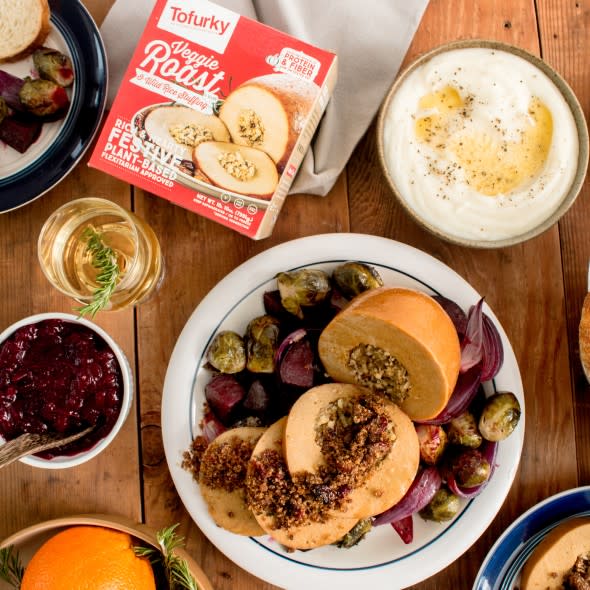How to lower your environmental footprint when preparing your Thanksgiving meal
An estimated 46 million turkeys are killed each year for Thanksgiving alone, but more people are switching to a plant-based Thanksgiving meal not only for the animals, but for their health and the environment.
Transitioning to a plant-based meal doesn't mean you have miss out on any Thanksgiving treats; you can easily make a few simple tweaks to your favorite recipes.
A plant-based diet is the best for the environment and it is extremely healthy as it is linked with the lowest risks of chronic diseases, compared to diets rich in meats, according to research from the World Health Organization and studies published in Environmental Research Letters.
An outbreak of salmonella linked to raw turkey has left one person dead, 63 people hospitalized and sickened 164, the Centers for Disease Control and Prevention said Thursday, Nov. 8.
"The outbreak strain of Salmonella Reading has been identified in various raw turkey products, including ground turkey and turkey patties," the CDC said.
Starting this eating style at Thanksgiving is a wonderful time to do so, as it is a time of reflection, kindness and gratitude. Plus, all of the leftovers won't go bad as quickly.

Eating plant-based foods also contributes less to the livestock sector of global greenhouse gas emissions.
"Vegan alternatives are widely available these days so it's easy to ‘veganise' dishes by replacing non-vegan ingredients with cruelty-free counterparts, such as meat substitutes, vegan cream and butter, or egg-free desserts," Dominika Piasecka, spokesperson for The Vegan Society, said.
Tofurky offers a turkey roast, ham and a feast with gravy and stuffing. It is made from ingredients such as wheat, water, organic tofu, onion, carrot, celery, garlic, leek and more. This alternative is healthy, doesn't add grease or fat, doesn't go bad as quickly and is a smaller portion.